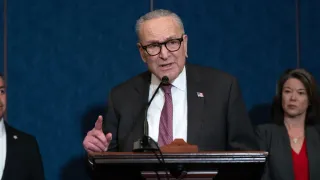March 14, 2018
Ford Recalls Almost 1.4M cars; Steering Wheel Can Come Loose
READ TIME: 1 MIN.
Ford is recalling nearly 1.4 million midsize cars in North America because the steering wheel can detach from the steering column and drivers could lose control.
The recall covers certain Ford Fusion and Lincoln MKZ cars from the 2014 through 2018 model years.
Ford says steering wheel bolts can loosen over time. The company says it knows of two crashes and one injury caused by the problem.
Dealers will replace the bolts with longer ones that have more aggressive threads and a nylon patch to stop them from coming loose.
Just over 1.3 million cars in the U.S. are being recalled. The rest are in Canada and Mexico.






